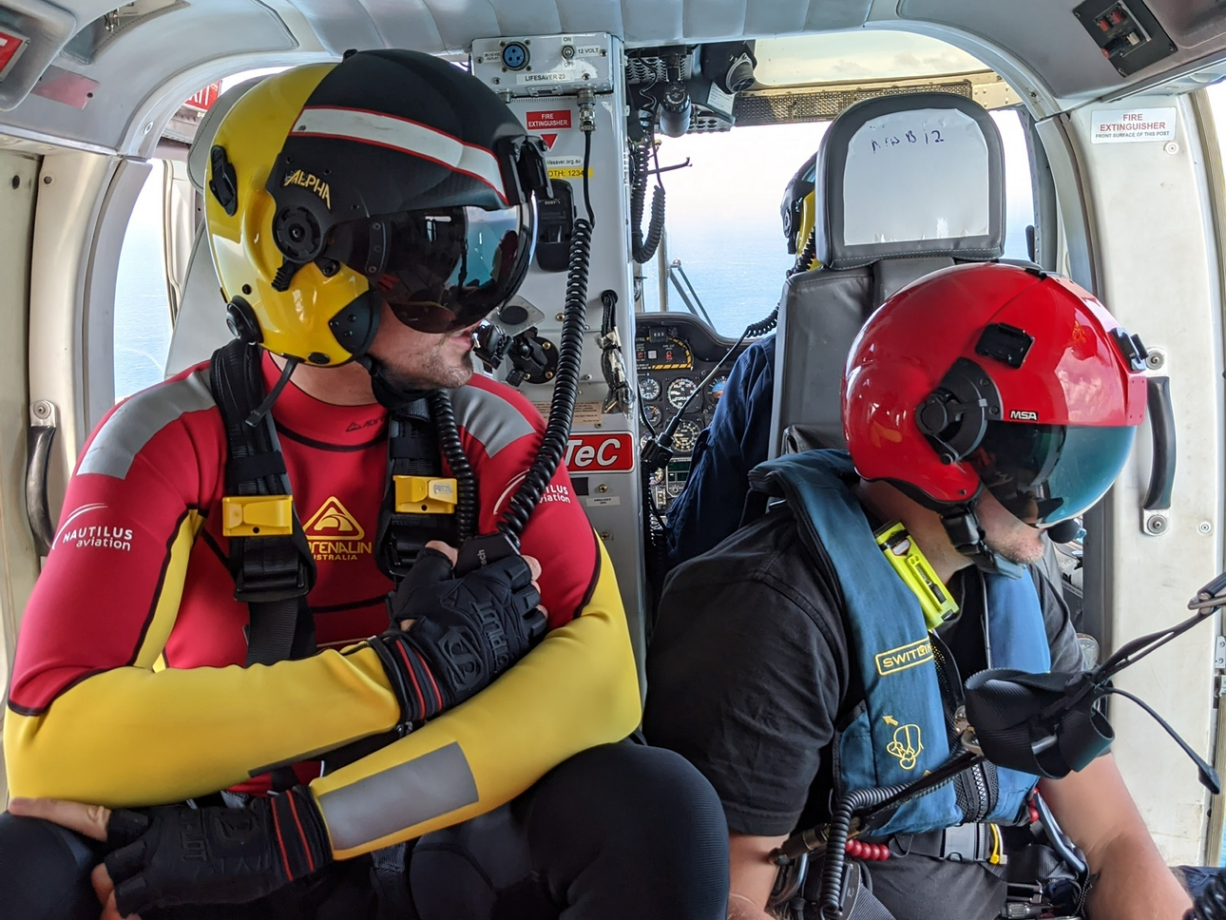Over the last 12 months, communities all over Far North Queensland have been devastated by a string of natural disasters: bushfires, floods, cyclones, and more bushfires.
From other parts of the country, we’ve watched on as homes were lost, businesses were destroyed, and people’s lives were thrown into disarray.
But amongst the devastation, we’ve also witnessed communities banding together under the most trying of circumstances. People helping each other through some of the worst moments of their lives.
Every step of the way, teams of emergency services workers and SES volunteers have put themselves in harm’s way to help the search and rescue, and recovery efforts. Supporting those efforts has been some of Morris Group’s own.
Aside from their usual day-to-day business of tourism and corporate helicopter services, the team from Nautilus Aviation has a long, proud history of providing helicopter search and rescue, firefighting, and medevac transportation across North Queensland and the Northern Territory.
Chief Operations Officer Morgan Sills says the last year has certainly kept the team on their toes.
This time last year we had multiple helicopters in Burketown and Normanton providing flood relief for residents for about six weeks,” Morgan said.
“Shortly after that we went straight into bushfire season working in the remote areas west of Cairns, where we had seven pilots working to protect homes.
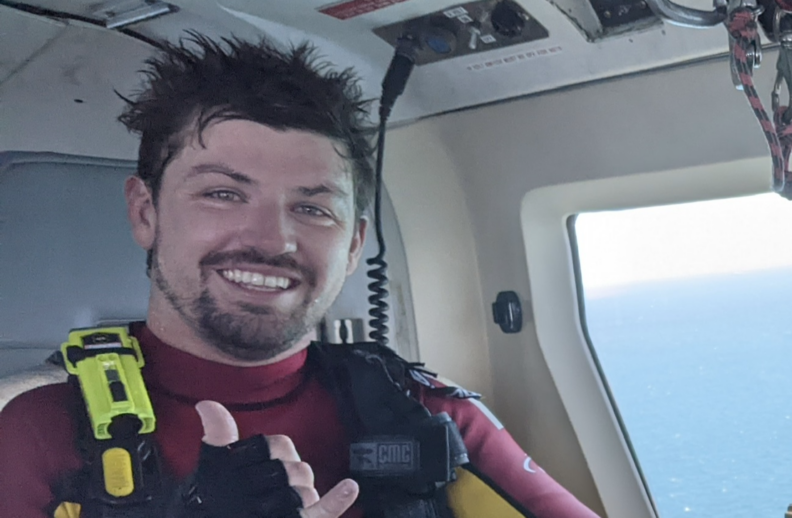
Nautilus Aviation Chief Operations Officer, Morgan Sills
“We were helping out by water bombing the fires and providing air attack which is coordinating the bombers from the air as well as mapping the active fire edge. We were able to save multiple assets and homes.”
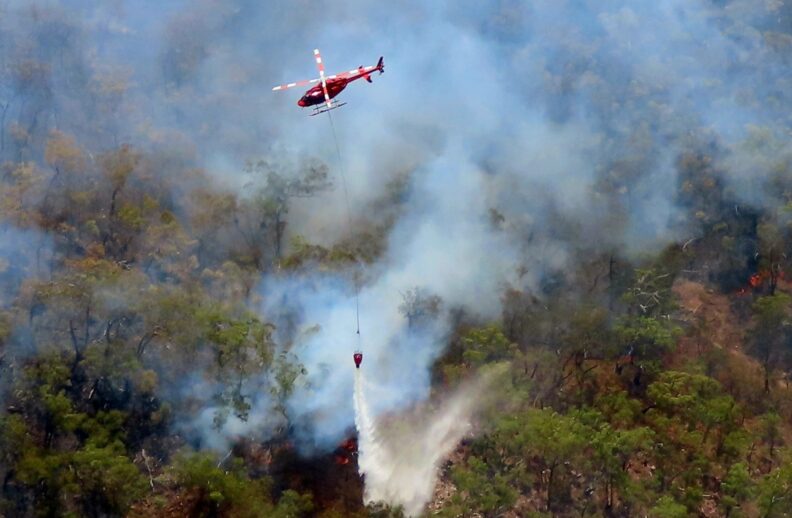
Unfortunately, the fires were just the beginning. The team then switched gears to help out when Tropical Cyclone Jasper brought a deluge of rain unlike anything the region had ever seen before. With that came a few extra complications.
“The Cairns airport went completely underwater which had a severe impact on our largest base and head office,” Morgan said.
“Pretty much straight after that we were tasked by Queensland Fire and Emergency Services and Queensland Police to fly emergency crews to the remote Indigenous communities of Wujal Wujal, Ayton and Degarra who were impacted by heavy, fast-flowing flood waters.
“This operation went on for many weeks because there were countless people all over the region that had been cut off. We helped out with evacuations, surveying damage from the air, resupply, transporting government workers, and carrying materials and fuel.”
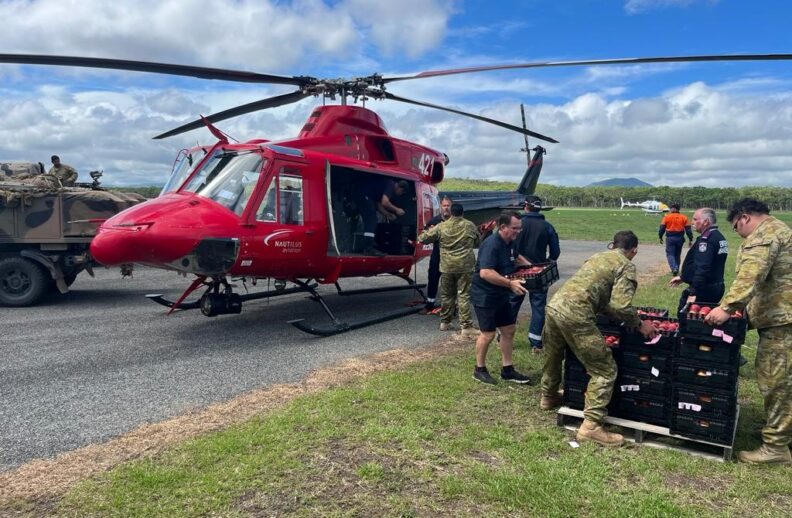
While every day on disaster recovery comes with its fair share of stories, Morgan says some hit home a bit more than others.
“I was doing welfare checks with two police officers in the Daintree Valley after Cyclone Jasper, and we landed at a house that had been completely isolated and cut off for four days,” he said.
“An elderly woman came out of the house. She was running out of food, water and fuel for her generator, and had no phone service because the phone towers had gone down in her area. She was due to have her pacemaker replaced in a few days and had no way of contacting anyone.
“The look of relief and gratitude on her face was very rewarding. We were stoked to be able to help her out of a scary situation.”
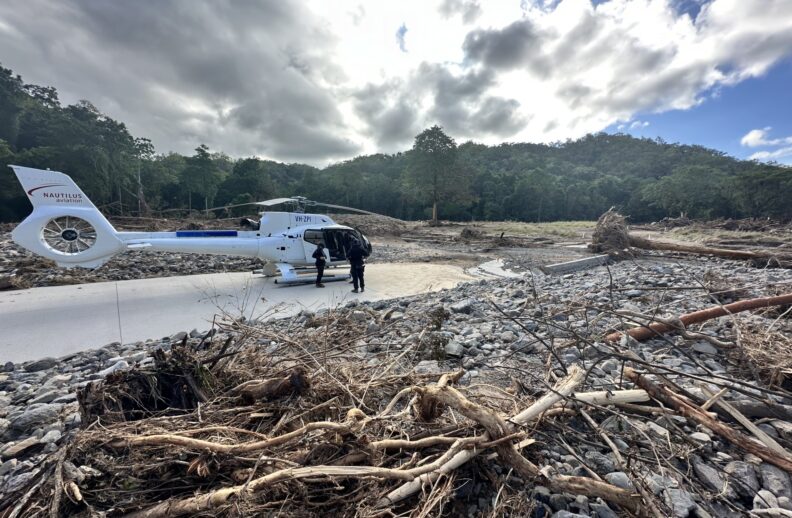
Morgan says the very nature of working during a disaster means it comes with its fair share of challenges. But with that, there’s also a big reward.
“The work itself can be very sporadic. Quite often you’ll be in the air heading back to base after a job and you’ll be sent a latitude and longitude for another job, and you have to just figure out a safe place to land when you get there,” he said.
“It takes a lot of on-the-spot critical decision making that you don’t usually have in our normal everyday work because that’s planned out weeks in advance.
“It’s also a really busy time for our operations team receiving the jobs and tasking them to the helicopters they have available; and for our support staff on the ground with refuelling and loading up helicopters for up to 12 hours a day.
“But at the end of the day, it’s a good feeling knowing that what you’re doing is providing people and communities with the essential care and support, and making a difference for people who are in a very dire situation.”
